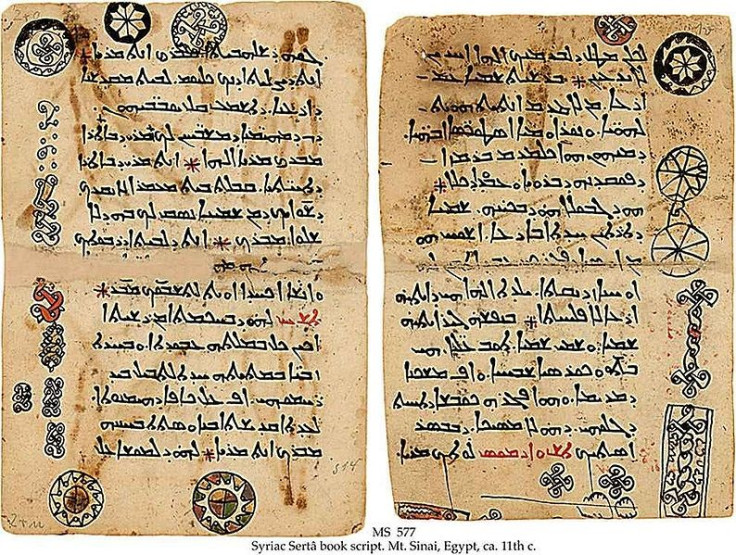The Word of Jesus: Schools in Holy Land Revive Aramaic Language

Two villages in the Holy land's small Christian community are teaching Aramaic - the language that Jesus spoke - in a bid to keep the ancient language alive.
Efforts to teach and revive the Aramaic language are taking place in the Palestinian village of Beit Jala and in the Arab-Israeli village of Jish, AP reported.
In Beit Jala, a village near Bethlehem, where Jesus was born according to the New Testament, older generations teach the language to the younger members of the community.
Similar efforts have been initiated in the village of Jish, which is nestled in the Galilean hills where Jesus lived and preached and where secondary schools are now teaching children the ancient tongue.
Most of the children are from the Maronite community, a dominant Christian church in neighbouring Lebanon.
Members still chant their liturgy in the Aramic, despite few understanding their meaning, the report added.
In Jish, up to 80 village children now voluntarily study Aramaic for two hours a week.
"We want to speak the language that Jesus spoke," said Carla Hadad, a 10-year-old resident of Jish, who is an eager learner, according to her teacher, Mona Issa.
"We used to speak it a long time ago," she added, referring to her ancestors.
During lessons children are taught a few words such as "elephant," ''how are you?" and "mountain".
The dialect taught in Jish and Beit Jala is Syriac, which was spoken by their Christian forefathers and resembles the Galilean dialect that Jesus would have used, according to Steven Fassberg, an Aramaic expert at the Hebrew University in Jerusalem.
"They probably would have understood each other," Fassberg said.
Residents of Jish initially called for the language to be taught in schools several years ago, but members of the Muslim and Christian communities in the area objected to the plan.
While Muslims were worried that learning the language could be an attempt to convert their children to Christianity, Christians were scared putting an emphasis on their ancestral language would lead to people further questioning their Arab identity, the report added.
Despite the backlash, Khatieb-Zuabi, a secular Muslim from an outside village and principal of one of the schools where the language is taught, decided to press ahead with the programme.
"This is our collective heritage and culture. We should celebrate and study it," he said.
Another school in Beit Jala, the Mar Afram school run by the Syrian Orthodox church, has been teaching the language for the past five years.
© Copyright IBTimes 2025. All rights reserved.



















